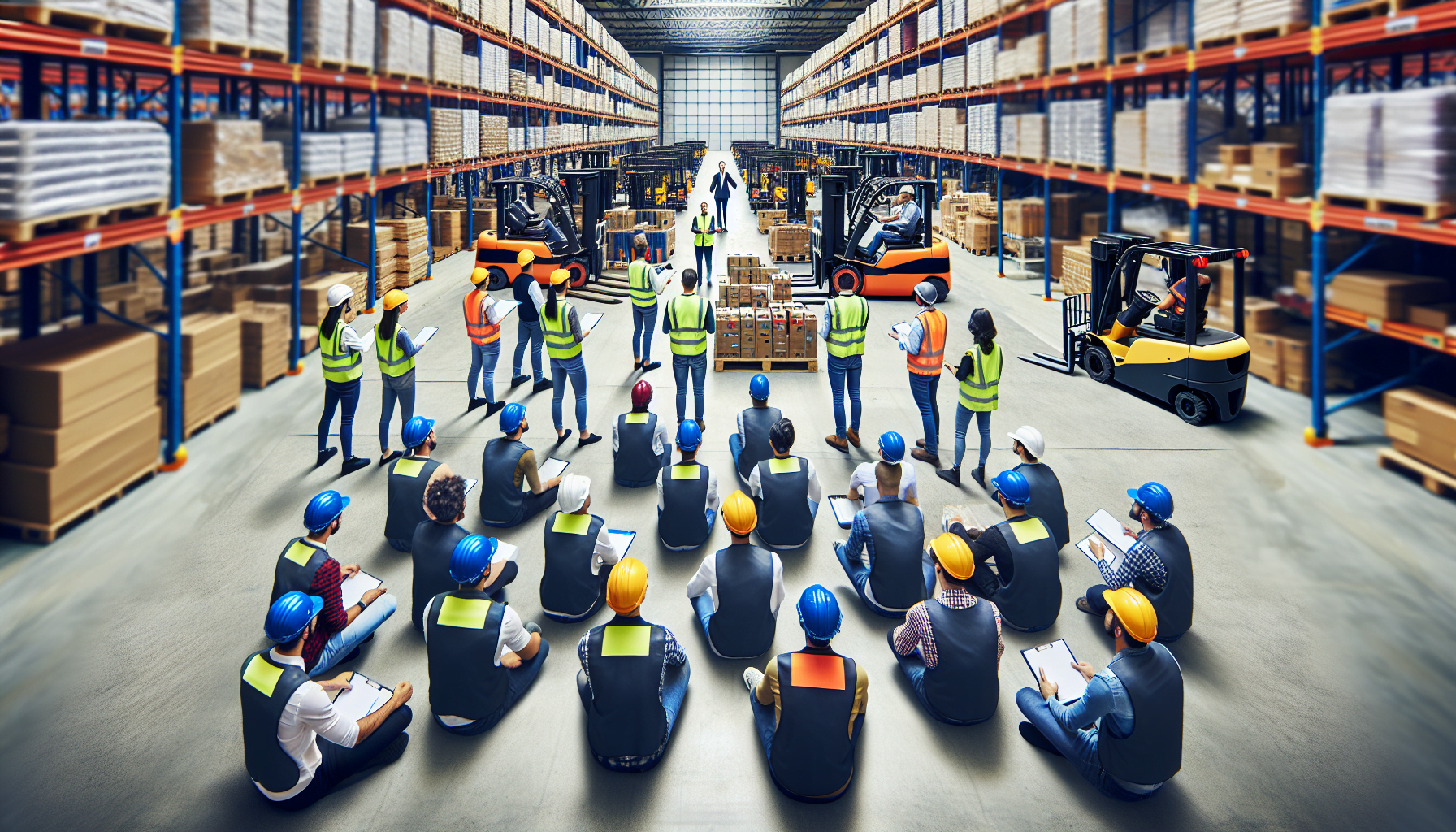In the fast-paced environment of a warehouse, ensuring the safety of both employees and the materials handling equipment (MHE) is of utmost importance. Accidents involving MHE can have severe consequences, including injuries, equipment damage, and even loss of life. In order to prevent such incidents, it is crucial to provide proper training for MHE operators and implement safety protocols within the warehouse.
The Importance of MHE Safety Training
Proper training is the foundation of a safe and efficient warehouse operation. When MHE operators are trained in the correct usage and handling of equipment, they are less likely to make errors or be involved in accidents. Here are some key reasons why MHE safety training is essential:
- Prevention of Accidents: Well-trained operators have a better understanding of the capabilities and limitations of the MHE, reducing the risk of accidents caused by operator errors or misjudgments.
- Improved Productivity: Training enables operators to use MHE more efficiently, leading to increased productivity in warehouse operations.
- Reduced Equipment Damage: Operators who have received proper training are less likely to mishandle equipment, resulting in fewer instances of damage to the MHE.
- Enhanced Efficiency: With training, operators can learn how to navigate the warehouse efficiently, reducing wasted time and improving overall workflow.
- Compliance with Regulations: Many industries have specific regulations and standards regarding MHE safety. Proper training ensures compliance with these regulations, avoiding penalties and legal issues.
Now let’s dive into the key elements of an effective MHE safety training program:
Key Elements of an Effective MHE Safety Training Program
A comprehensive MHE safety training program should cover various aspects of equipment handling, warehouse layout, and emergency procedures. Here are some essential elements to include:
- Equipment Familiarization: Operators should receive training on the specific MHE they will be operating, including its controls, functions, and maintenance requirements.
- Safe Operating Practices: Training should emphasize safe practices such as proper load handling, appropriate speeds, and maintaining clear visibility while operating the equipment.
- Warehouse Layout and Navigation: Operators need to be aware of the warehouse’s layout, including aisle widths, floor markings, and designated traffic paths.
- Emergency Procedures: Operators should be trained on how to respond to emergencies, including fire, spills, and injuries. This includes knowledge of the location and use of fire extinguishers, first aid kits, and emergency exits.
- Inspections and Maintenance: Proper training should cover the importance of regular inspections and maintenance of MHE to ensure its safe and efficient operation.
It is also essential to regularly update the training program to incorporate any new equipment or changes in safety regulations. Ongoing refresher courses and evaluations can help reinforce and enhance the effectiveness of the training.
At HCO Innovations, we understand the significance of MHE safety in warehouse operations. That is why we offer comprehensive material handling equipment management solutions to optimize the safety, productivity, and efficiency of your warehouse. Our team of experts can assess your current operations, provide customized training programs, and recommend suitable equipment and safety measures to enhance your MHE safety.
If you would like to learn more about our material handling equipment management solutions, please visit our website.
Investing in proper MHE safety training is a proactive step towards preventing accidents, reducing liabilities, and creating a secure work environment. By prioritizing safety and providing comprehensive training, you can improve MHE operations and ensure the well-being of your employees and equipment.

